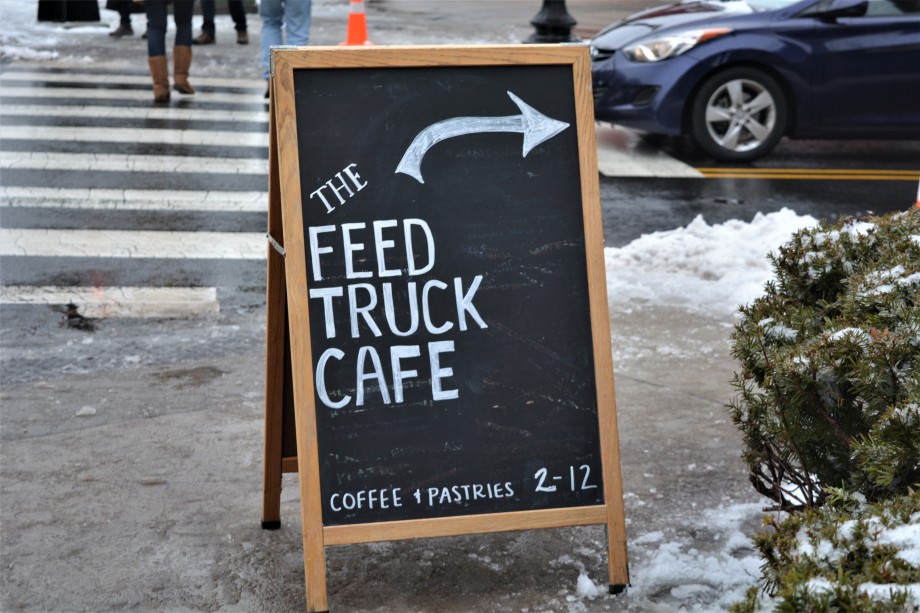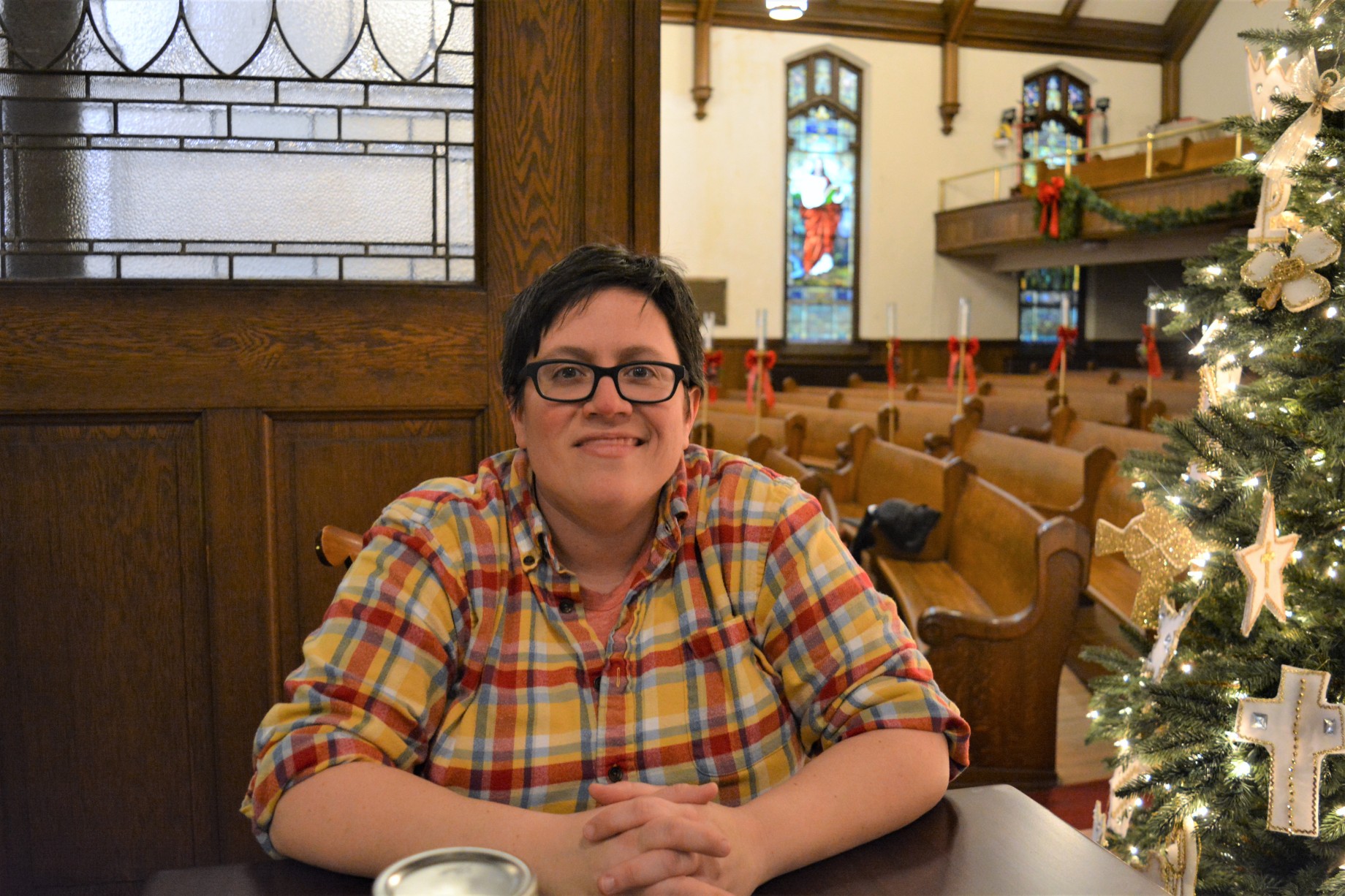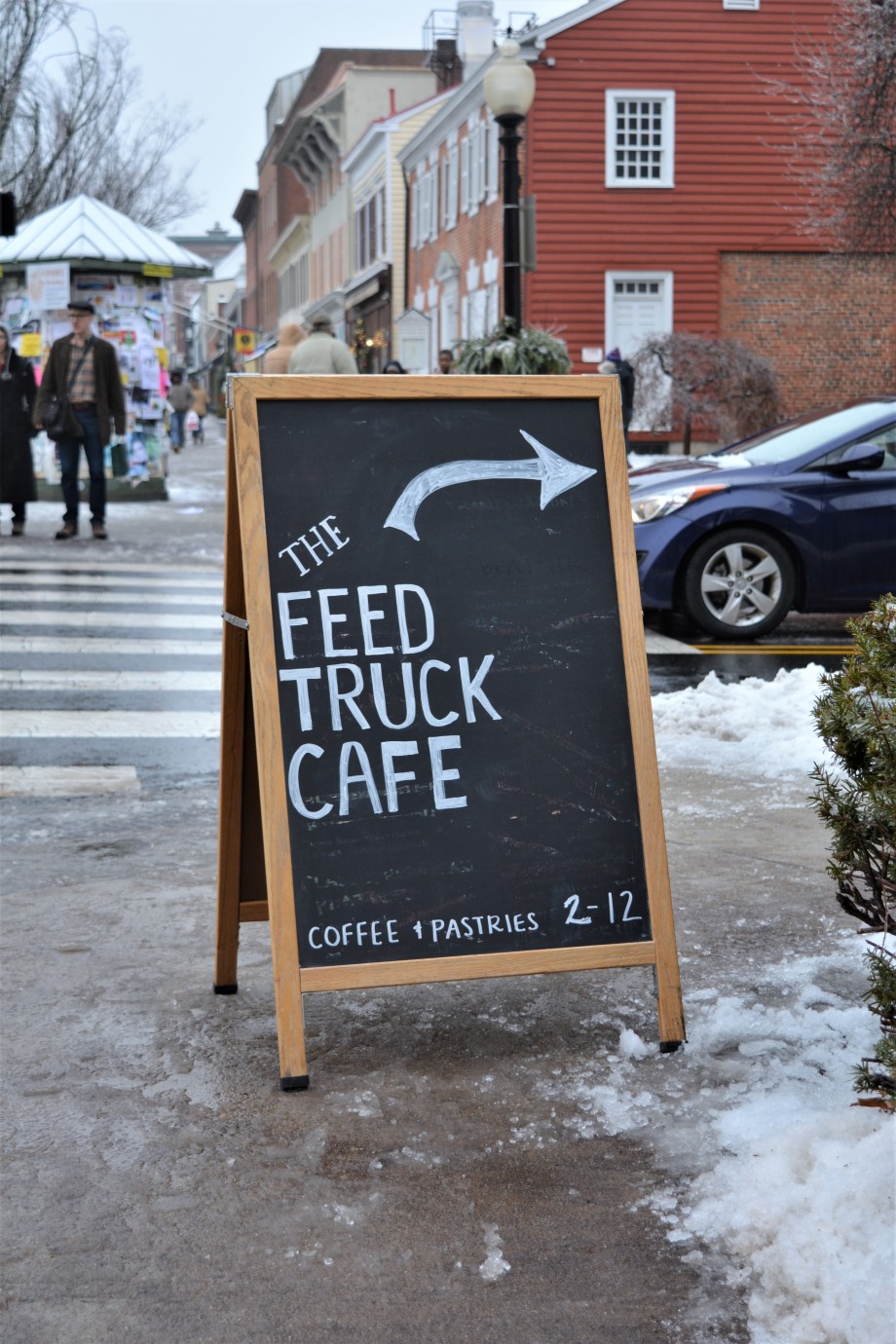
“Food is a great equalizer…it gives a chance to treat people right.”
If you’ve visited New Jersey’s #1 Farmers Market, West Windsor’s, you’re likely to have seen a bright yellow and white food truck, proudly carrying a logo of a sheep with its head in a bucket – The Feed Truck.
Last month, I had the opportunity to sit down with Jessica Winderweedle, founder of The Feed Truck, to learn about its agricultural and social impacts through food:
“Feed Truck Ministries, Inc., the umbrella organization, started in 2014. It was born out of my time at Princeton Theological Seminary and attendance at Kingston United Methodist Church.
Food is a common theme; many churches are centered around food,” she added, citing examples such as frequent potlucks and pastries on Sunday morning. “There’s a natural love of food and community.” Additionally, Jessica herself had worked for Starbucks for eleven years and really appreciated the community built there. “The church can learn a lot from that.” Kingston United Methodist Church is a small church of about seventy people, but there’s a significant population of young adults and college students. “The Feed Truck was a way for our church to go beyond its four walls,” and to make an impact on its community. It was also important for the ministry to have “a bigger impact in a smaller space” as opposed to spreading themselves thin over a greater area. As it was small in size, they were looking at what their church could do realistically. This meant that the truck would stay within a one hour radius of Princeton.
At the time, Jessica had already been thinking along the lines of entrepreneurial ministry. Kenda Dean, a professor at Princeton Theological Seminary, also interested in social entrepreneurship, helped her get started. Jessica attended the Greater NJ Methodist Conference, where she spoke to a committee of higher education and ministry. She received financial support from them, and received additional grants from the Global Board of Higher Education and Ministry later on.
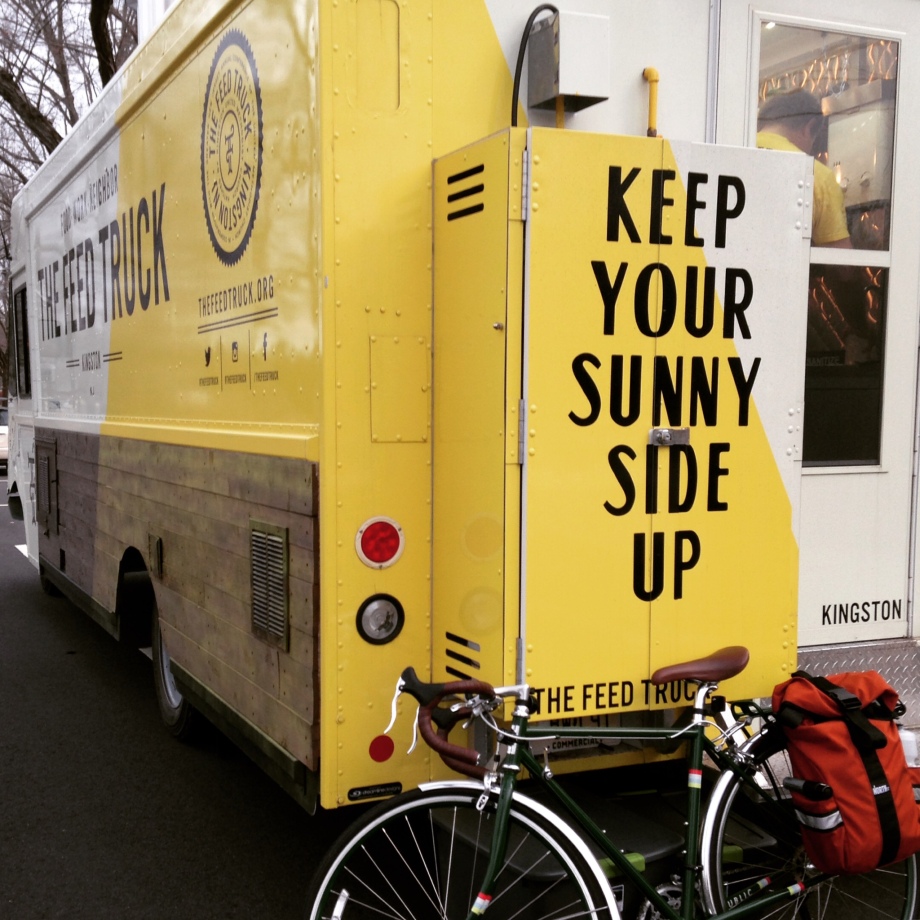
From there, The Feed Truck was born and built upon three operational pillars: “Food. Work. Neighbor.”
- Food: to care for people’s physical needs.
Jessica explained that The Feed Truck only serves breakfast for a few reasons. In the last chapter of John, Jesus cooked breakfast for the disciples. Breakfast is a financially responsible option and allows them to be as sustainable as possible. Above all, anyone can make breakfast, and you can eat breakfast at any time of the day (“you can’t do that with tacos”).
- Work: to teach social responsibility.
“Many young adults work in food service or retail but don’t find it to be life giving.” The goal of The Feed Truck is to show the value of the work to [God’s] kingdom. “There’s hard work that’s not worth it, and there’s hard work that is worth it.” Additionally, though the ministry hires employees, The Feed Truck is operated largely by volunteers.
- Neighbor: The Feed Truck tries to cater to a wide demographic.
Revenue generating events include the West Windsor Farmers Market; the revenue generated allows The Feed Truck to host free events on Princeton’s campus for students, for small churches that cannot afford to have a catered event, and for the Homefront in Ewing, NJ. “We get to see kids who wouldn’t otherwise have the chance to go up to a food truck and get whatever. Food is a great equalizer.” The Feed Truck serves the same food to the hungry as it does to high paying Princeton area residents; everybody eats the same food. Furthermore, The Feed Truck donates 10% of its sales to other non-profits in the area; 50% of which (5%) supports organizations alleviating food insecurity and/or providing good, local work opportunities.
These three pillars drive The Feed Truck’s impact on both the agricultural system and the local community. “[Working with farmers is] a good thing to expose [students] to.” It was important for the food truck to be local – it supports not only local farmers, but local bakers and artisans as well. All three pillars also explain how the Feed Truck teaches beyond what most food service jobs may teach: “it’s not just about providing great food, or even great hospitality – it’s about the relationships we have from when we begin to prepare in the morning to when the day’s over.”
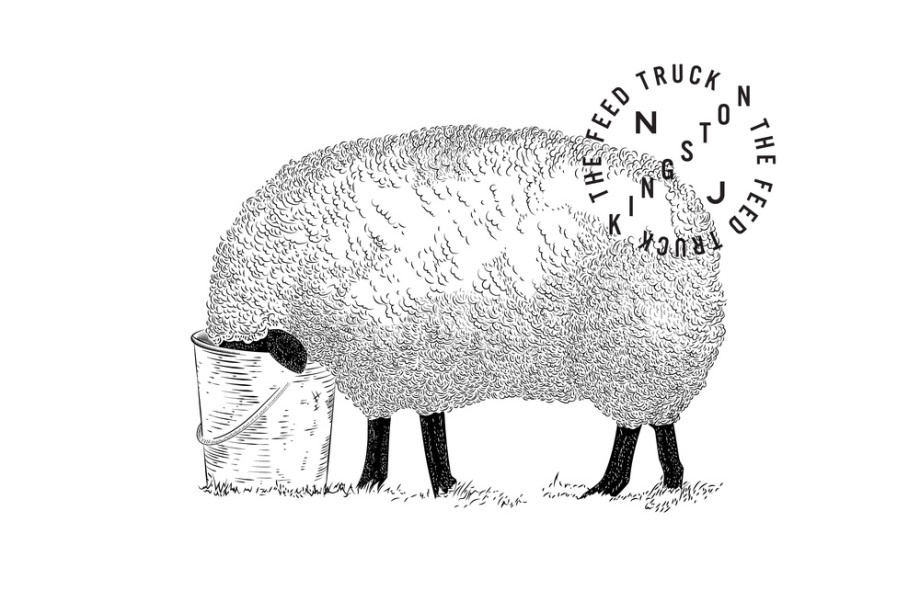
The ministry’s logo, a sheep with its head in a bucket, reflects Kingston United Methodist Church’s mission statement: “feed more sheep”. The ministry’s ultimate goal is to give people a (surprisingly) positive experience with the church. “It gives a chance to treat people right.”
